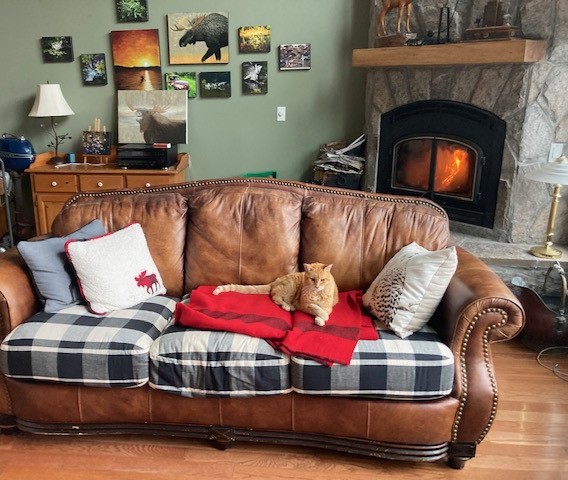
One of the highlights of island life is occasionally getting off the island. Although I do like my slice of forest and shoreline, it’s nice to experience some form of civilization. A mainland trek always involves several errands: visit the transfer station, fill up a water-dispenser bottle at the community centre tap, return returnable bottles and cans, get groceries.
The transfer station (AKA the dump) is decidedly not a free-for-all. First, only District of Muskoka residents are allowed in. Second, you must run the gauntlet of the garbage attendant, who writes down license plates and interrogates everyone about what’s being discarded.
On the most recent garbage run, we had a bag of garbage and some recycling. And some stuff to get rid of at the reuse shed. The reuse shed is a repository for things that have served their purpose for you but may be a treasure for somebody else. The garbage attendant is the arbiter of what’s allowed in the reuse shed. I had a bread box (that did a very good job at making bread moldy rather than preserving freshness), a bag full of skeins of wool (the fact that it didn’t even receive a glint of interest during the pandemic led me to the realization I was never going to pick up a crochet hook again), and a first-generation electric ice cream maker (that was brought home from the reuse shed once-upon-a-time and has since languished, unused, in a kitchen cupboard that was needed for other things).
I was not planning to mention any of this – just slyly deposit them in the shed like adding a new hen to a coop. Nothing to see here. Except someone in the car volunteered the news about incoming reuse fodder.
Here’s the problem. The reuse shed has a big sign at the entrance that lists the rules. The list of “dos” is much, much shorter than the list of “don’ts”. No kids stuff. No sports stuff. No electric stuff. No stuffed stuff. You get the picture. The bread box was clear sailing. Wool and an electrical appliance, not so much.
“What do you have?” the attendant said. I turned and looked into the back of the car, as if reminding myself what I brought.
“A bread box and some wool,” I said, fingers crossed.
“Don’t know about wool,” he said. We then entered into a lengthy debate about whether or not wool could be considered fabric. “If it was up to me,” he said, “I’d say wool is okay.” Luckily, it was up to him.
After dumping the garbage bag in the garbage repository and the recycling in the recycling repository, we pulled up in front of the shed, spirited our collection of someone’s future finds (including the ice cream maker) inside, and beat a hasty, but successful, retreat.
The grocery shopping was less successful. Even though we are supposedly in the midst of fresh produce abundance, the grocery store had limp herbs, anemic tomatoes, and no zucchini. There was also no pita bread. Tortillas abounded, so it wasn’t a case of a flatbread fatwa. The second store I visited didn’t have pita either. Thinking perhaps it was a regional issue, I went to another grocery store in a town on the way back. Still no pita.
I admit that not being able to make a fattoush salad is definitely a first world problem. I recalibrated the week’s menu and settled back into island time. Soon, the hummingbirds will leave and so will the leaves. But not yet.
